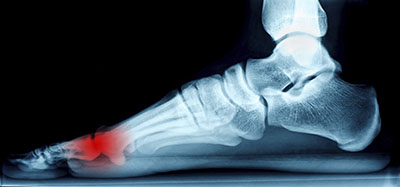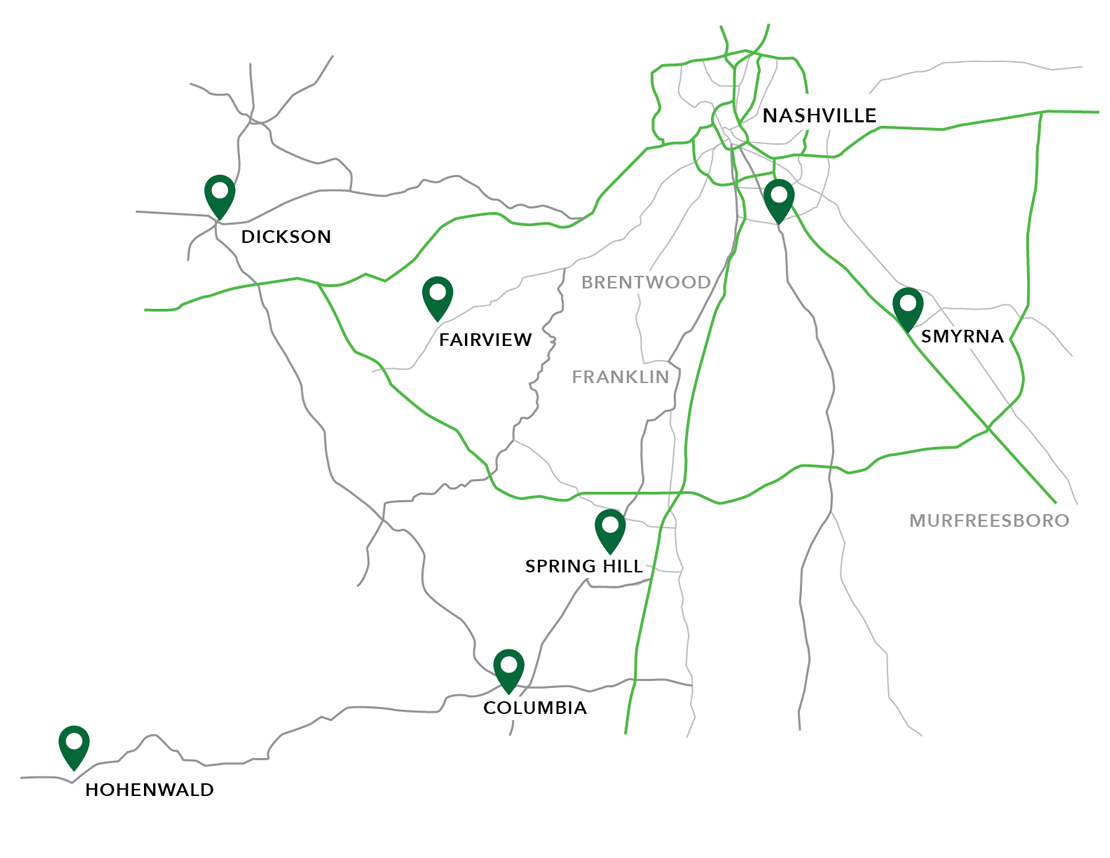Morton's Neuroma Treatment in Middle (Central) Tennessee

A neuroma is a painful condition also referred to as a pinched nerve or a nerve tumor. Neuromas are often more common among women and can cause discomfort or pain when walking. If left untreated the pain and discomfort may increase.
Neuromas can often be treated non-surgically, but surgical may become an option for sever cases. The podiatrists at AFACC treat neuromas conservatively first, and only suggest surgery when needed.
To learn what neuroma treatment options are best for you find the nearest AFACC clinic, or fill out the appointment form to the left. To learn more about the symptoms and causes of neuromas continue reading below.
What is a Neuroma or Pinched Nerve?
A neuroma is a benign growth of nerve tissue frequently found between the third and fourth toes that brings on pain and discomfort between the toes and the ball of the foot. Those suffering from a neuroma, also referred to as a pinched nerve, may find it difficult to walk and often describe the pain to be similar to having a stone in their shoe.
What are the Symptoms of a Neuroma?
The principal symptom associated with a neuroma is pain between the toes while walking. Those suffering from the condition often find relief by stopping their walk, taking off their shoe, and rubbing the affected area.
Other common symptoms of a neuroma are:
- Pain in the forefoot & between the toes
- Tingling and numbness in the ball of the foot
- Swelling between the toes
- Pain in the ball of the foot when weight is placed on it
What causes a Neuroma?
Although the exact cause of a neuroma is unclear, there are a number of factors that can contribute to its formation. The following are some of the more common causes of a neuroma or pinched nerve:
- Biomechanical deformities, such as a high arched foot or a flat foot
- Trauma that causes damage or swelling to the nerve
- Improper footwear that causes the toes to squeeze together
- Repeated stress to feet
How to Treat Neuromas
Neuromas, especially when addressed early, can be treated non-surgically. Early treatments may involve:
- Padding or taping the ball of the foot to change abnormal foot function
- Custom orthotic devices made by your podiatrist to control foot function and reduce or prevent neuroma symptoms
- Anti-inflammatory drugs and cortisone injections to ease pain and inflammation
When early treatments fail and the neuroma progresses past the threshold for such options, surgery may become necessary. The procedure, which removes the inflamed and enlarged nerve, can usually be conducted on an outpatient basis, with a recovery time that is often just a few weeks. The podiatrists and surgeons at AFACC always look to conservative treatment first, and suggest surgery only when absolutely necessary.
Remember that foot pain is not normal, and any disruption in foot function limits your freedom and mobility. It is important to schedule an appointment with your podiatrist at the first sign of pain or discomfort in your feet, and follow proper maintenance guidelines to ensure their proper health for the rest of your life.

